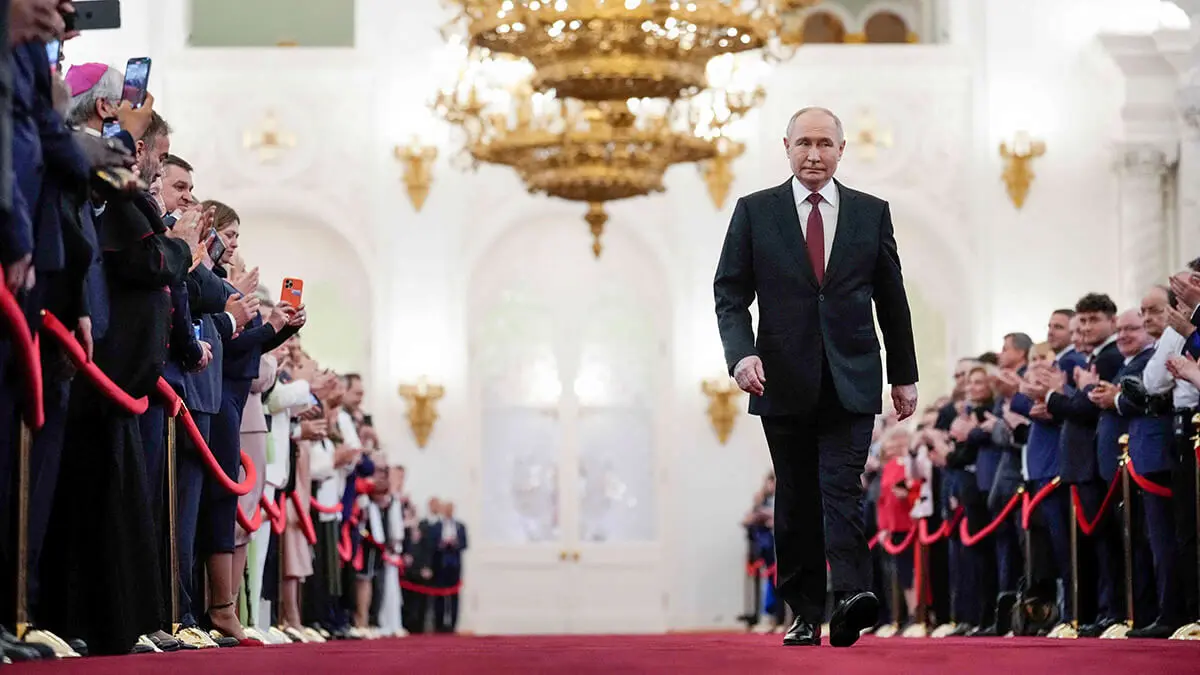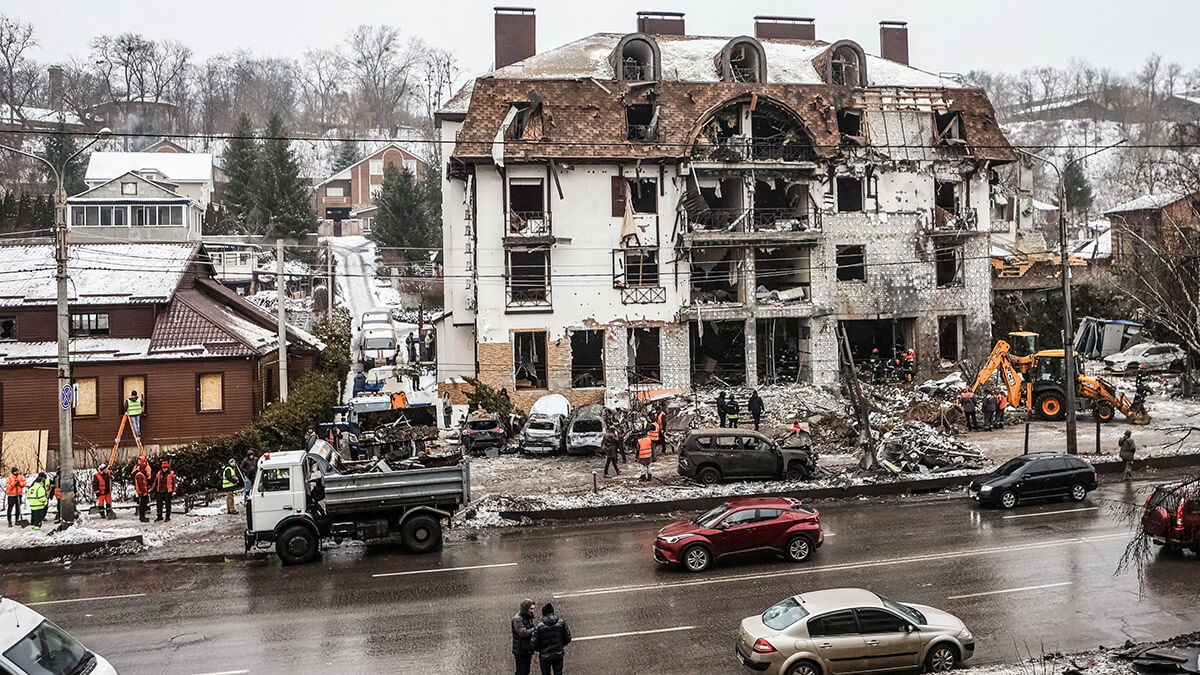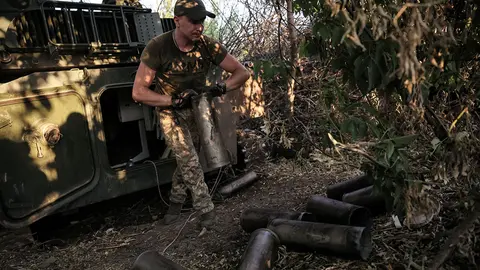Russia's silent advance is worrying, and very much so

On the programme ‘De cara al mundo’ on Onda Madrid, reporter and journalist María Senovilla, a contributor to Atalayar, analysed the recent bombings by Russia and the fall of the symbol of the Ukrainian resistance from the field. She also reviewed the visit of the new NATO Secretary, Mark Rutte, to Ukraine.
The last few hours have been very intense. Russia has shelled the border with Romania, the ferry crossing used by NATO to deliver material, and Kiev has, for its part, shelled Russian territory with ATACMS.
That's right, and on top of that there are hundreds of drones that the two armies have sent into each other's territory on several nights of almost unprecedented attacks. The latest attack was significant because Russia was bombing the passage across the Danube River through which NATO supplied material, weapons and other supplies to Ukraine via Romania. While Ukraine was bombing, although it has not been made clear exactly where in Russian territory, a very valuable radar station, valued at over 100 million euros, of which Russia apparently has only 10 units and which would make it less accurate now for Russia to attack Ukraine. So these have been unprecedented cross attacks.
More than 200 drones have been counted, in addition to those missiles that have been used both to bomb the Romanian Ferry crossing and to bomb that radar station in Russia. In addition to that, there has been another night of shelling in cities like Kherson, Kharkov and others, of course, on the front line in the Donbas. A very intense 24 hours and it looks like the escalation is going to continue.

Special attention, Maria, to Vuhledar. In the Donbas, this town, which was a symbol of Ukrainian resistance, has fallen. You were there a few months ago. Worrying Russian advance in the Donbas for another week.
That's right, we have focused a lot on talking about Pokrovsk because it has been the most unexpected and we have left aside what was happening a few hundred kilometres further north and to everyone's surprise, a few days ago it was already being announced that the Russians were entering Vuhledar, that urban fighting was imminent and 24 hours ago it was announced that the city had been lost.
It was a symbol because it was one of the initial targets when the Russian invasion of Ukraine began and along a 60-kilometre front between Vuhledar, Velika Novosilka, about 10 kilometres north of Donetsk, the Ukrainian volunteer army was positioned there to defend it in what looked like a lost position and they managed to impose themselves, they managed to stop the enemy from getting through.
When I was there, I spent several days with the soldiers and the trenches were barely 800 metres from the Russian trenches. They were on the edge of the city and 800 metres further out you could see the Russian positions when they showed them to you with binoculars and they managed to hold out, I insist, for two and a half years. A position that was taken for lost, so it became a symbol of resistance very close to Donetsk and it seemed to be secured until, in a very rapid and sudden advance, the position was lost and the city fell.
It should also be noted that the new head of the Ukrainian army, Syrskyi, is more conservative than Zaludny and we are not seeing the kind of resistance that took place in Bakhmut at any cost, at the cost of many Ukrainian lives. It was no surprise that they retreated once the Russian army had advanced so quickly and penetrated so deeply, but it was a surprise that they reached Vuhledar so quickly. The Russian advance that has been taking place in recent weeks in the Donbas is worrying.
If you look at the position maps showing the areas where the two armies, particularly the Russian army, are advancing, they are not very large in terms of square kilometres, but they are advancing towards strategic positions that Ukraine seemed to have secured, but that is proving not to be the case.

Let's end with the political issue. NATO's new Secretary General, Mark Rutte, visited Ukraine this week. That is, after Zelensky's productive tour of the United States.
‘I have come to make it very clear that NATO stands with Ukraine‘. Those were the words of Mark Rutte in Kiev on his first official trip as the new secretary of the Atlantic Alliance.
It was not the first time Mark Rutte had visited Ukraine. As Prime Minister of the Netherlands, he had already been four times, but this week's visit was the most significant, as President Zelensky also acknowledged. The support that Zelensky received was resounding. The Ukrainian president took the opportunity, of course, to insist on the importance of Ukraine's membership of NATO and made a very interesting point by asserting that the shooting down of Iranian missiles is no different from the shooting down of Russian missiles, making a comparison with what is also happening these days in the Middle East.
They spoke of this victory plan, which Zelensky already presented on his US tour last week. In addition to what has been said, the non-verbal communication, the gestures, the hugs, the closeness of the new Secretary of the Atlantic Alliance and the President of Ukraine has been palpable. All the media have highlighted this. Once again, a little more hope for the process to move forward so that Ukraine can join the Atlantic Alliance and thus ensure that when this war is over, which it will be at some point, there will not be another Russian invasion.










